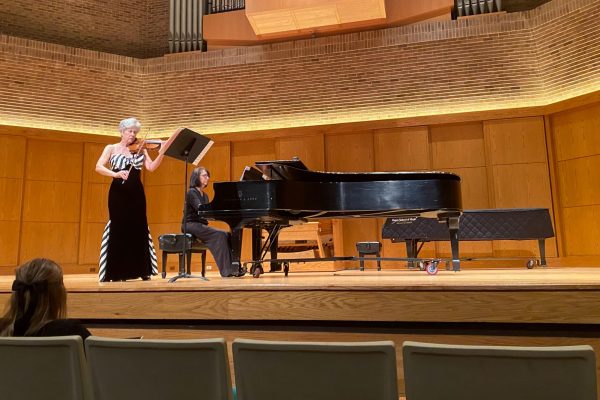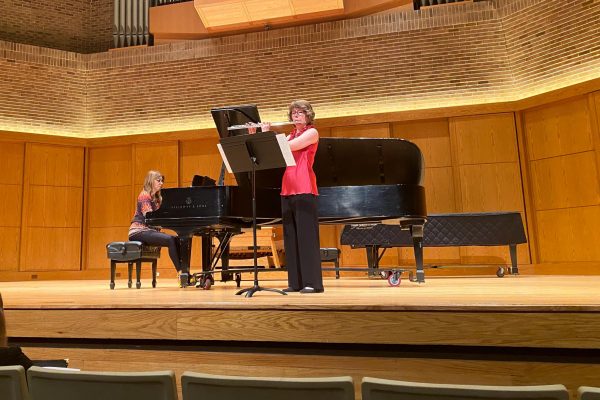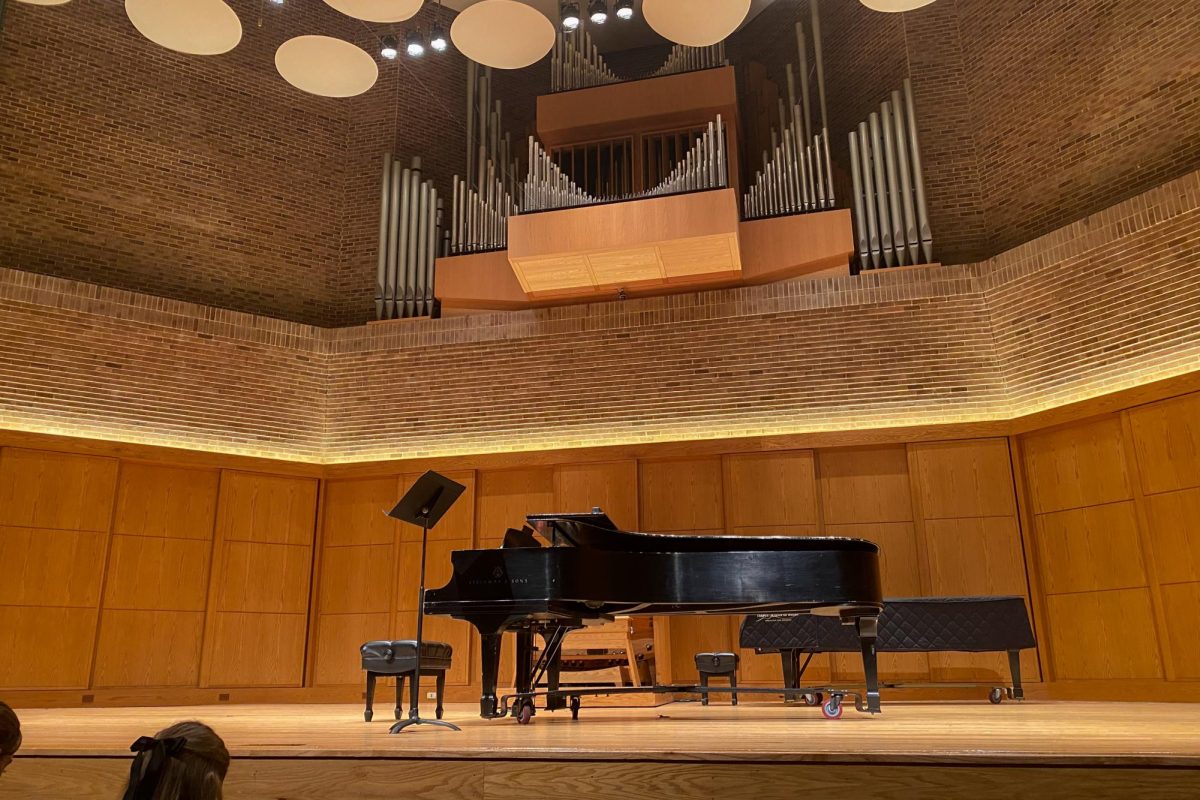Musicians and community members came together at the Hayes School of Music to celebrate Hispanic heritage and culture with music and poetry at the National Hispanic Heritage Month Concert Sunday Sept. 28.
Performances included poetry readings by professors and renditions of musical pieces written by Hispanic composers. The room was comfortably filled in Rosen Concert Hall, consisting of students, staff and members of the community.
Melissa Lesbines, a senior lecturer of musicology and applied piano, organized the event in collaboration with other faculty members. This year marks her fifth concert as coordinator of the event.
“These concerts come to life through the dedicated efforts of our talented music faculty,” Lesbines said. “What I love about this event is bringing this rich and diverse musical heritage to members of the campus community and community at large.”
The variety of works performed showcases the diversity of perspectives within the Hispanic community.
“Programs have included works from dozens of composers and poets from today and yesterday,” said Lesbines. “Through lush melodies and folk-based rhythms characteristic of diverse regions of the Spanish-speaking world, each concert acts as a musical travelog bringing listeners on a musical journey.”

Lesbines performed two pieces on the piano, including one in collaboration with Nancy Bargerstock, a professor emerita of violin. Bagerstock’s passion for teaching and music came together in her performance of “Malagueña, Op. 21” alongside Lesbines.
“I am teaching Pablo Sarasate’s ‘Malagueña, Op. 21’ and felt it would be good to perform it for my students. Violin is also a popular instrument in Latin musical culture.” Bagertock said.
According to The National Museum of the American Latino, Hispanic Heritage Month is a time to recognize the many contributions Hispanic and Latino individuals have made to the United States.
María Piñeiro Chapela, a visiting professor in the Department of Languages, Literatures and Cultures, has a unique and complex perspective on what Hispanic heritage means to her.
“I was born in Galicia, an autonomous community in Spain that used to be an independent nation in the Middle Ages. Galicia has its own language and culture, so as a bilingual Galician and Spanish speaker, I have often questioned the extent of my Hispanic identity,” Piñeiro Chapela said. “In this difficult moment when Galician culture and language are fading in favor of Spanish, Galicians need to stand up for their own heritage,”
Piñeiro Chapela read aloud the poem “El Negro Mar” by Edino Krieger.

Leonardo Flores is a professor and chair of the Department of English. He was also born and raised in Puerto Rico.
Flores read aloud the poem, “Memories of No Consequence,” and its English translation by Erika L. Sánchez. The piece emphasized the complex experience of a Hispanic individual in the U.S.
When asked about the meaning of Hispanic heritage, Flores said it’s an opportunity to showcase the contributions Hispanic individuals have brought to the U.S.
“Music is one of the great arts that conveys culture. It reaches deep inside our bodies and makes us dance, tap and sway,” said Flores. “Our music and dance express world views and relations with each other, blending rhythms from our different provenances and contemporary realities. And when you get into the music of a different culture, you get a glimpse into their culture and world view.”
Yunuen Gómez-Ocampo, an associate professor of Spanish, said that music is essential in the celebration of a culture.
“Music is a powerful, living archive of cultural identity,” Gomez-Ocampo said. “As a form of artistic expression, it empowers communities and fosters deep connections.”
Hispanic Heritage Month is from Sept. 15 to Oct. 15 and can be celebrated in various ways. Previously recorded performances of Hispanic compositions can be found on WDAV.
“I hope they all left with a song in their heart and that their psyche was soothed,” said Bagerstock. “Music is therapy for the soul.”

